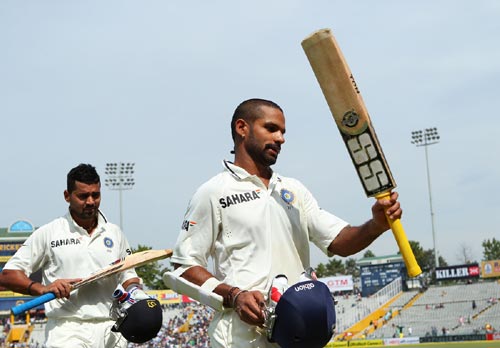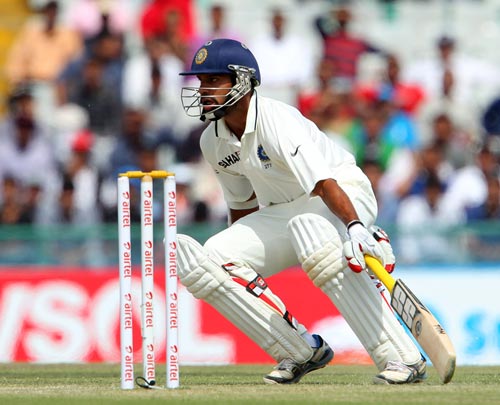
Shikhar Dhawan announced his arrival on the Test arena with a breathtaking unbeaten 168-ball 185 during which a number of records fell by the wayside.
En route his unbeaten 185 in the third cricket Test against Australia, Dhawan scored the fastest hundred on debut in the 136 years of Test history.
Dhawan reached the milestone in only 85 balls surpassing West Indian Dwayne Smith's debut Test ton hit in 93 balls against South Africa back in 2004.
England's Matt Prior hit a century on debut against West Indies off 105 balls.
However, Dhawan missed out on the record of fastest Test hundred by an Indian which is held by Kapil Dev, who scored a century off 74 balls.
The fastest ever Test hundred record is held by Viv Richards, who smashed a ton in 56 balls.

Dhawan also became the first Indian opener to score a century on debut. KC Ibrahim held the earlier record with fighting 85 on debut against the West Indies at the Feroze Shah Kotla way back in 1948.
Dhawan is also in line to become the fastest double centurion on debut as he is only 15 runs short of 200 and has played only 168 balls so far. His strike-rate is the best ever by a Test debutant.
Among the highest scores by Test debutants, Dhawan is currently sixth in the list led by R E Foster of England.
Foster scored a majestic 287 against Australia in an Ashes Test match way back in 1903.
The next four in the list are Jacques Rudolph (222 no) of South Africa, Lawrence Rowe (214), New Zealander Matthew Sinclair (214) and Sri Lanka Brendon Kuruppu (201 no).Kuruppu's double hundred was the slowest as it took him 777 minutes (two minutes less than 13 hours).